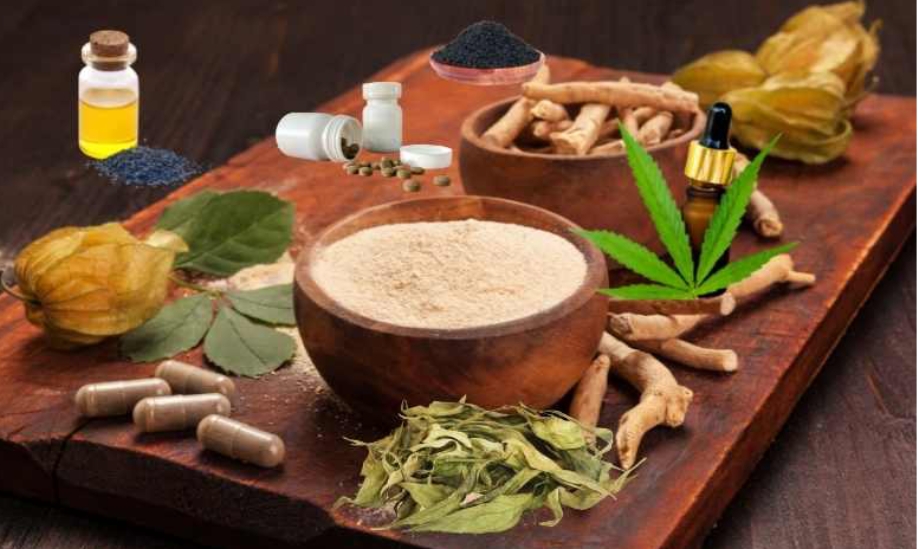Arthritis is not a single condition but a group of disorders affecting the joints, commonly causing inflammation, pain, and stiffness. While osteoarthritis and rheumatoid arthritis are the most prevalent forms, there are over 100 types that can affect people of all ages. Conventional treatments often focus on symptom relief rather than long-term healing, prompting many to explore holistic alternatives like Ayurveda. Recognizing early signs such as stiffness, joint swelling, or reduced mobility can help manage the condition before it progresses.
Ayurvedic Perspective on Arthritis
Ayurveda says that arthritis is due to an imbalance in the body’s three doshas, Vata, Pitta, and Kapha. Osteoarthritis is usually linked to aggravated Vata, leading to dryness and stiffness in the joints. Rheumatoid arthritis, on the other hand, is considered “Ama Vata,” a condition involving toxin buildup due to poor digestion and Vata imbalance. Ayurvedic diagnosis aims to find the root cause by examining your dosha constitution, making it a personalized approach to healing, rather than a one-size-fits-all solution.
Common Ayurvedic Treatments for Arthritis Pain
Ayurvedic treatments for arthritis often include a combination of therapies aimed at detoxifying the body, reducing inflammation, and restoring dosha balance. These may involve:
- Abhyanga (herbal oil massage) for lubrication and pain relief
- Swedana (herbal steam therapy) to reduce stiffness
- Basti (medicated enemas) for Vata detox
- Herbal formulations like Shallaki, Guggulu, and Ashwagandha
Herbal Remedies That Relieve Joint Discomfort
Several herbs used in Ayurveda have proven anti-inflammatory and analgesic properties. Shallaki is known for its ability to reduce joint pain and swelling. Guggulu has detoxifying qualities that target accumulated “Ama” in the body. Turmeric, especially when combined with black pepper, can naturally ease inflammation. These herbs, when prescribed in appropriate combinations, can significantly improve joint flexibility and reduce pain.
The Role of Panchakarma in Arthritis Management
Panchakarma, the Ayurvedic detoxification process, plays a key role in managing arthritis. It involves five cleansing procedures that aim to remove toxins, revive tissues, and rebalance doshas. For arthritis, Basti (medicated enema) and Virechana (purgation) are often emphasized. This process not only relieves symptoms but also prevents further joint degeneration. However, Panchakarma should always be done under expert supervision, as it’s tailored to an individual’s constitution, condition, and seasonal factors for better results.
Importance of Diet and Lifestyle in Ayurvedic Healing
Diet plays a crucial role in managing arthritis through Ayurveda. Foods that aggravate Vata and Ama, like cold, dry, and processed items, are typically avoided. Instead, warm, moist, and easily digestible foods such as cooked vegetables, soups, and herbal teas are recommended. A sedentary lifestyle can worsen stiffness, so gentle movements like yoga or daily walks are encouraged. Practicing mindfulness and getting adequate sleep also contribute to dosha balance and overall healing
Simple Home Practices to Ease Joint Stiffness
There are easy home remedies rooted in Ayurvedic principles that can offer relief daily:
- Apply warm sesame or Mahanarayan oil to affected joints before a bath
- Soak in a warm Epsom salt bath to relax muscles
- Drink herbal teas like ginger, turmeric, or fenugreek for anti-inflammatory benefits
- Use hot water bags to improve circulation and ease pain
These remedies may not replace clinical treatment, but can support it effectively when practiced consistently.
Hyderabad is becoming a well-regarded destination for Ayurvedic care, particularly for chronic conditions like arthritis. The city combines traditional practices with modern infrastructure, offering accessibility to skilled Ayurvedic doctors, quality herbs, and specialized treatment centers. Those looking for personalized care often find that the Best Ayurvedic Treatment for Arthritis in Hyderabad combines knowledge with patient-centric care, making it a preferred choice.
If you’ve tried conventional medicine but still struggle with stiffness, flare-ups, or medication side effects, Ayurveda can be a complementary or alternative route. It’s especially useful for chronic conditions where pain becomes a part of daily life. Consulting an experienced practitioner is key to designing a treatment plan that’s effective and safe for your body.





























